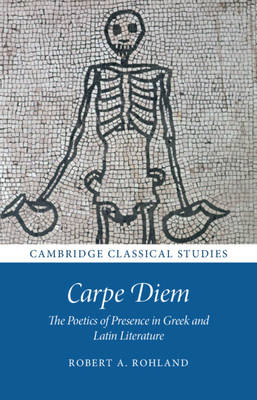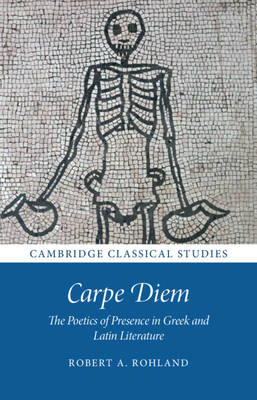
- Afhalen na 1 uur in een winkel met voorraad
- Gratis thuislevering in België vanaf € 30
- Ruim aanbod met 7 miljoen producten
- Afhalen na 1 uur in een winkel met voorraad
- Gratis thuislevering in België vanaf € 30
- Ruim aanbod met 7 miljoen producten
Zoeken
€ 168,95
+ 337 punten
Uitvoering
Omschrijving
Carpe diem - 'eat, drink and be merry, for tomorrow we die!' - is a prominent motif throughout ancient literature and beyond. This is the first book-length examination of its significance and demonstrates that close analysis can make a key contribution to a question that is central to literary studies in and beyond Classics: how can poetry give us the almost magical impression that something is happening here and now? In attempting an answer, Robert Rohland gives equal attention to Greek and Latin texts, as he offers new interpretations of well-known poems from Horace and tackles understudied epigrams. Pairing close readings of ancient texts along with interpretations of other forms of cultural production such as gems, cups, calendars, monuments, and Roman wine labels, this interdisciplinary study transforms our understanding of the motif of carpe diem.
Specificaties
Betrokkenen
- Auteur(s):
- Uitgeverij:
Inhoud
- Aantal bladzijden:
- 320
- Taal:
- Engels
- Reeks:
Eigenschappen
- Productcode (EAN):
- 9781316510827
- Verschijningsdatum:
- 1/12/2022
- Uitvoering:
- Hardcover
- Formaat:
- Genaaid
- Afmetingen:
- 140 mm x 216 mm
- Gewicht:
- 512 g

Alleen bij Standaard Boekhandel
+ 337 punten op je klantenkaart van Standaard Boekhandel
Beoordelingen
We publiceren alleen reviews die voldoen aan de voorwaarden voor reviews. Bekijk onze voorwaarden voor reviews.











